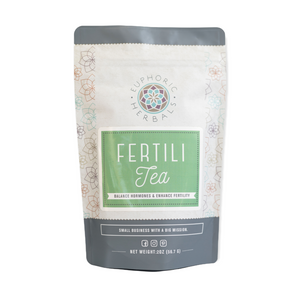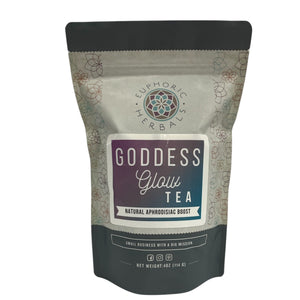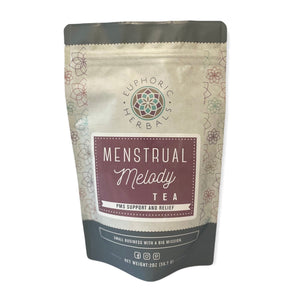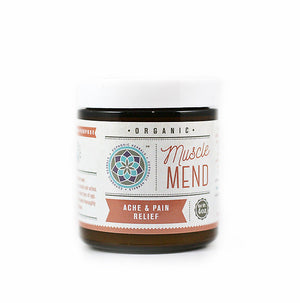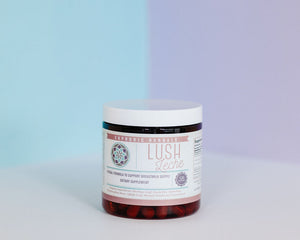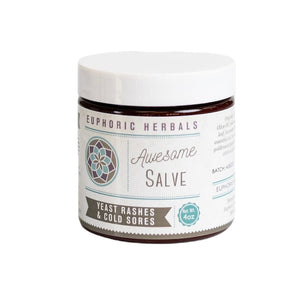Iron deficiency anemia is a common problem during pregnancy. It can make you feel weak and tired and may put your baby at risk, so it's critical to deal with it right away.
Once iron deficiency is present, there is a standard treatment given by your doctor to address it (usually in the form of a supplement). However, if you are interested in avoiding anemia during your pregnancy, you can turn to natural foods and herbs to boost your iron levels before a problem develops.
Here's what you need to know about the common signs of iron deficiency in pregnancy, what causes it, and how to address it naturally.
What Causes Iron Deficiency Anemia in Pregnancy?
The most common cause of anemia in pregnancy is iron deficiency.
During pregnancy (particularly the second half), your body has to make more red blood cells to supply both you and your growing baby. Iron is used to make hemoglobin, which is a core protein found in red blood cells, and this makes it a critical nutrient during pregnancy. (Folic acid is also very important for red blood cell production.)
If you don't consume enough iron or if your body isn't absorbing it effectively, you may end up with something called iron deficiency anemia.
Essentially, anemia is when your body lacks enough healthy red blood cells to transport oxygen to all your tissues. Low iron levels are one possible cause of this and the most common reason for developing anemia.
Common Symptoms & Signs of Iron Deficiency in Pregnancy

How do you know if you are suffering from iron deficiency during pregnancy?
It can be difficult to tell if you have anemia or not because the mild version of it is very similar to general pregnancy symptoms. Ultimately, it should be caught in a blood test, which will confirm its presence.
If you are struggling with the following symptoms, you may want to ask your doctor or midwife about extra blood work to check for a deficiency:
- Fatigue
- Weakness
- Difficulty concentrating
- Dizziness or lightheadedness
- Headaches
- Shortness of breath
- Pale skin
- Cold hands and feet
- Cravings for ice
Signs of a more severe form of iron deficiency in pregnancy may include:
- Chest pain
- Rapid heartbeat
- Low blood pressure
Anyone can develop anemia during pregnancy, but there are a few factors that put you at a higher risk:
- Carrying more than one baby
- Two (or more) closely spaced pregnancies
- Heavy periods pre-pregnancy
- Not consuming many iron-rich foods
- Vegan or vegetarian diet
- Vomiting a lot during pregnancy
- History of anemia (outside of pregnancy)
Risks to You and Your Baby

Iron deficiency anemia is very treatable, but it's important to address it quickly because there are risks associated if it isn't corrected.
For example, severe iron deficiency increases your risk of premature birth. It's also associated with a lower birth weight for the baby and could also increase your risk of postpartum depression.
Some studies indicate that anemia during pregnancy may increase the risk of infant death before or after birth. It also puts your child more at risk for developing anemia themselves and will put a huge amount of stress on your own body. (1)
The bottom line is that you should get help to correct iron deficiency as soon as possible or avoid it altogether (more on that soon).
Conventional Treatment for Iron Deficiency
Conventional treatment for iron deficiency anemia is pretty straightforward: iron supplements.
Most prenatal vitamins already contain iron and may be enough to keep your iron levels where they should be. For those who are still falling short, physicians may recommend a specific dose of an iron-only supplement.
In severe cases, your doctor may prescribe an iron infusion through an IV. This is typically only the case if your iron levels need to raised quickly or if your body is not absorbing iron from the pill form for some reason.
To help these supplements work correctly, avoid taking them at the same time as calcium or calcium-rich foods like dairy. Although calcium is another very important nutrient during pregnancy, it interferes with iron absorption.
Iron supplements can also cause digestive upset and constipation, which can be frustrating, especially if you already feel nauseous (take the tablets with a little food to make your stomach happier).
If you would like to avoid the need for supplements and treatments, you can focus on upping your iron intake naturally during pregnancy in the following ways.
**The recommended iron intake during pregnancy is 27 mg. per day.
What Natural Foods & Herbs Can Prevent Iron Deficiency?
Animal Sources of Iron

Iron from animal sources is the form most easily absorbed by your body. It's known as 'heme iron' and can be very helpful for boosting your iron levels as long as you don't mind eating meat or animal products.
Red meat (particularly beef) and shellfish, like clams and oysters, are highest in iron. Beef and chicken livers also pack in the iron and can even be taken in pill form if you don't like the thought of eating them.
Turkey (particularly the dark meat) and chicken contain iron but in lower amounts.
Plant Sources of Iron
Plants contain a less absorbable form of iron known as 'non-heme iron'. This means you need to consume more iron from plant sources to get your body to absorb as much as it would from animal sources.
That being said, there are plant-based options that are very rich in iron. And if you pair them with a vitamin C food, studies have shown that the non-iron becomes much more absorbable and available to your body. (2)
Here are some examples of good plant sources of iron:
- Spinach
- Other dark leafy greens
- Beans (navy, kidney, black, lima)
- Dried fruit (raisins, apricots)
- Oatmeal
- Pumpkin seeds
- Potatoes (skin on)
- Quinoa
- Broccoli
- Tomato juice
- Soybeans/tofu
- Cocoa powder/dark chocolate
- Whole wheat
If you are primarily getting your iron from plant-based sources, add vitamin C rich foods to your meals whenever possible. This includes bell peppers and fruits like citrus, mangos, berries, kiwi, and pineapple.
Iron-Rich Herbs

One "secret weapon" you have against anemia is to make use of iron-rich herbs that have been used for centuries- some of them specifically to support the body through pregnancy.
Nettle leaf is one of the best overall herbs for pregnancy. It's rich in an easily assimilated form of iron as well as vitamin C, calcium, magnesium, potassium, and other nutrients.
Yellow dock is another herb that is particularly rich in iron. It has a long history of use for treating mild anemia and boosting iron levels during pregnancy and after heavy menstrual cycles.
Alfalfa is rich in a variety of nutrients, including iron, magnesium, potassium, calcium, vitamin C, vitamin A, and B vitamins. It is another herb frequently used during pregnancy and to replenish the body postpartum.
Dandelion (both the roots and leaves) is rich in iron and other nutrients. It's also cleansing for your body, particularly the liver, and can help get rid of toxins.
Red raspberry leaf is packed full of iron and is another herb frequently recommended during pregnancy. It contains many nutrients and compounds that are easily assimilated and support uterine health.
Fresh parsley is high in iron and also rich in folic acid (another nutrient important for healthy red blood cells).
If you aren't sure where to start with herbs, you can opt for this organic Iron Tonic Tea that's filled with most of the herbs just mentioned.
Other 'Remedies' to Boost Iron
Two other natural iron boosters worth mentioning are molasses and cooking in a cast iron skillet. Molasses is naturally rich in iron and other nutrients like magnesium and potassium. Using a cast iron skillet to cook your food in adds extra iron to your diet and has potential for helping with iron deficiency anemia. (3)
Precautions
Many people have had great success with naturally preventing iron deficiency during pregnancy through foods and herbs.
However, remember that it's a very serious issue, so don't hesitate to get professional help as needed. If you recognize any signs of iron deficiency in pregnancy in yourself, reach out to your doctor or midwife right away.
Natural Iron Tonic
Now that you know more about iron deficiency and pregnancy, you can help yourself avoid or recover from it. If you suspect that iron might be a challenge for you during pregnancy, take steps ahead of time to plan a way to manage it.
One way to do that is by keeping this Iron Tonic Tea on hand to drink as needed. Enjoy daily or weekly to see if it helps your energy and iron levels.
Disclaimer: This post is for informational purposes only. It does not constitute medical advice and should not be substituted for medical advice. Please consult your health care provider, herbalist, midwife, or naturopathic physician before taking herbs, supplements, etc. Here's the link to our full disclaimer.






















































